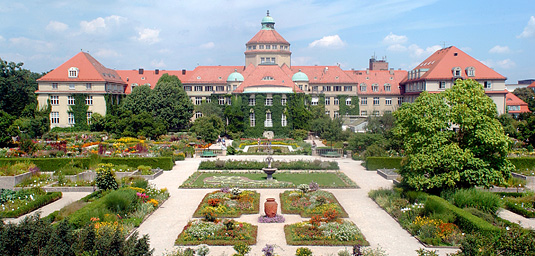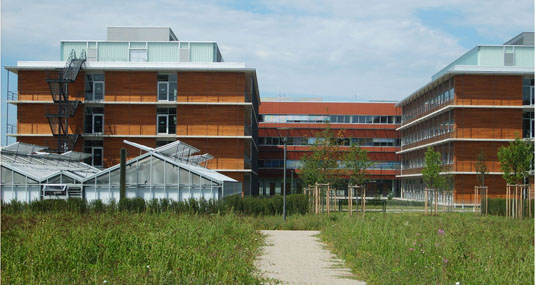About us

From 1912 until 2008 the Botany Department of the LMU was located in the historical Botanical Institute asscociated with the Botanical Garden in Nymphenburg.

In August 2008 the department of physiological Botany relocated to the new LMU Biozentrum in Planegg-Martinsried, just southwest of Munich. Here an eastern view of the Biozentrum with greenhouses.
In the Botany Department of the LMU, the biology of plastids and their prokaryotic, photosynthetically active predecessors are central research topics. Plastids, the characteristic cell organelles of plants, are the key to the fundamental role plants play in the origins and development of life on Earth. The Botany research groups implement molecular, genetic, biochemical, cytological and ultrastructural approaches to understanding processes like regulation of gene expression between the nucleus and plastids, import of plastidary proteins as well as regulation of photosynthesis. Transgenic approaches, i.e. specifically changing genetic information in the nucleus and/or plastids, have become instrumental as methodological tools. The Botany Department is integrated in a network of local and international groups researching the biology of cell organelles, including the Genetics Department of the LMU and the Adolf Butenandt Institute. In addition, the Botany Department is a central contributor to research projects, including "Endosymbiosis: from prokaryotes to the eukaryotic organelle" (SFB TR1, chair: Prof. Jürgen Soll), the SFB "Center of Integrated Protein Science (CIPS)", various DFG projects, the International Max-Planck Research School, the BMBF-Group GABI-FUTURE, and the Bavarian elite-network program "Protein Dynamics in Health and Disease".

